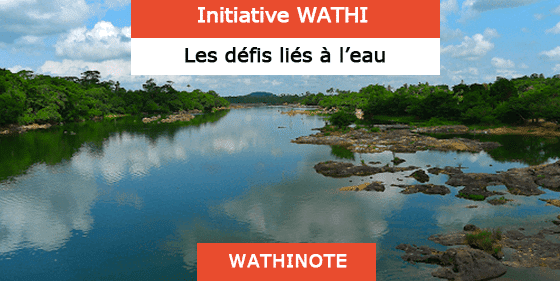

Author: Fadel Ndaw
Affiliated organisation: World Bank
Site of publication: worldbank.org
Type of publication: blog
Date of publication: 30 April 2020
As the coronavirus (COVID-19) spreads through Africa, it is time to make the water crisis a core focus for our political leaders.
Many African cities have had to take drastic measures in recent years to tackle water shortages. Cape Town’s historic shortage in 2018 is fresh in our minds.
That same year, Bouaké in Côte d’Ivoire received emergency financing of $8.5 million from the World Bank to cope with a serious water shortage. The intervention solved the shortage by building two compact water treatment plants, boring and fitting 20 new wells, rehabilitating 82 hand pumps in the villages connected to the city’s water system, and distributing safe water by water tankers.
Currently, African countries allocate no more than 0.5% of their GDP to the sector and invest only a very small proportion of international assistance in this area
Water, sanitation and hygiene central to the COVID-19 crisis
The World Health Organization’s number one recommended protective measure against the coronavirus is to wash hands frequently with soap. Ensuring the availability of safe water for all is clearly vital to keep up the fight against the spread of COVID-19 and future pandemics.
Yet in Sub-Saharan Africa, nearly 63% of people in urban areas, representing the main clusters of the virus, find it hard to access basic water services and cannot wash their hands. An estimated 70% to 80% of the region’s diseases are attributable to poor water quality. Dysentery and cholera, for example, are among the leading causes of infant mortality.
Rapid urbanization calls for sustainable solutions to improve access
The crucial issue of access to safe water is especially important in a region facing rapid urban growth. By 2050, over 1.6 billion Africans will be living in cities and urban slums. The coming years will see populations doubling in some 100 major cities. Some, such as Lagos in Nigeria, with its 23 million inhabitants today, and Kinshasa in the Democratic Republic of Congo, with 12 million, are megalopolises already. The world will also see other pandemics. And climate change will increase the episodes of drought.
Yet in Sub-Saharan Africa, nearly 63% of people in urban areas, representing the main clusters of the virus, find it hard to access basic water services and cannot wash their hands. An estimated 70% to 80% of the region’s diseases are attributable to poor water quality
Hence it is vital for African governments to put strategies in place, earmark part of their budget, and develop policies to supply water, sanitation, and hygiene services for all their people. A number of solutions are available to them:
- Increase investments in water and sanitation: To meet Sustainable Development Goal 6, Africa will need to invest massively in the water and sanitation sectors over the next 10 years. Some $10-15 billion a year will be needed to supply the entire population with safe drinking water and provide basic sanitation service. Currently, African countries allocate no more than 0.5% of their GDP to the sector and invest only a very small proportion of international assistance in this area.
- Guarantee the financial viability of water utilities:A recent World Bank study on the performance of water supply services in Africa finds that half of the region’s utilities do not have the revenues to cover their operation and maintenance costs.
- Re-use wastewater: For many countries, wastewater management has become an important way to meet the demand for water, especially around urban areas where market gardens are being developed and providing vital food supplies to city residents. In African countries, however, just 10% of wastewater is treated. An increase in the reuse of it to irrigate cropland could secure the region’s food security as countries apply circular economy approaches to water security.
Today’s historic health crisis will deal a long-term blow to the global economy, but it will hit the fragile African economies even harder. The faster these economies respond, the more resilient they will become. A sustainable response to COVID-19 and the pandemics that will follow must include a focus on water and sanitation.
Les Wathinotes sont soit des résumés de publications sélectionnées par WATHI, conformes aux résumés originaux, soit des versions modifiées des résumés originaux, soit des extraits choisis par WATHI compte tenu de leur pertinence par rapport au thème du Débat. Lorsque les publications et leurs résumés ne sont disponibles qu’en français ou en anglais, WATHI se charge de la traduction des extraits choisis dans l’autre langue. Toutes les Wathinotes renvoient aux publications originales et intégrales qui ne sont pas hébergées par le site de WATHI, et sont destinées à promouvoir la lecture de ces documents, fruit du travail de recherche d’universitaires et d’experts.
The Wathinotes are either original abstracts of publications selected by WATHI, modified original summaries or publication quotes selected for their relevance for the theme of the Debate. When publications and abstracts are only available either in French or in English, the translation is done by WATHI. All the Wathinotes link to the original and integral publications that are not hosted on the WATHI website. WATHI participates to the promotion of these documents that have been written by university professors and experts.
